Strategies for Retaining Quality Tenants in Your Rental Property
The Importance of Tenant Retention
As a property owner or landlord, retaining quality tenants is crucial for long-term success. A high tenant turnover rate can be expensive and disruptive, leading to lost rental income, costly repairs, and the time-consuming process of advertising, screening, and onboarding new tenants. Moreover, having stable tenants provides the opportunity to build strong relationships, improve property upkeep, and create a reliable cash flow stream.
In this guide, we will explore several proven strategies to help you retain quality tenants in your rental properties. Whether you are a seasoned landlord or a first-time property owner, these insights will offer practical advice on creating a tenant-friendly environment, improving tenant satisfaction, and reducing turnover.
Provide a Welcoming and Well-Maintained Property
A critical factor in tenant retention is ensuring that the property is comfortable, clean, and well-maintained. Tenants are more likely to renew their leases when they feel the property is safe, inviting, and in good repair.
Regular Maintenance and Upkeep
Routine maintenance is essential to keep your property in top condition and to prevent small issues from becoming costly repairs. This includes ensuring that plumbing, electrical systems, heating/cooling units, and appliances are functioning properly. Regular inspections can catch minor issues before they turn into major problems. A proactive approach to maintenance will demonstrate to your tenants that you are committed to providing a high-quality living environment.
Examples of regular upkeep include:
- Seasonal HVAC maintenance
- Repainting common areas and exterior elements
- Checking for leaks and mold issues
- Repairing or replacing appliances as needed
Cleanliness and Landscaping
A visually appealing property encourages tenants to take pride in their home and helps to create a positive atmosphere. Keeping the property clean and tidy is equally important. This applies to common areas, the exterior of the property, and the individual units. Also, consider improving the property’s curb appeal with well-maintained landscaping, trimmed hedges, and fresh flowers. First impressions matter and a clean, well-kept property can help tenants feel at ease and more inclined to stay.
Establish Clear and Open Communication
Good communication is a cornerstone of tenant retention. Tenants who feel that their concerns are heard and addressed are far more likely to stay in a property long-term.
Regular Check-ins
As a landlord, regularly checking in with your tenants helps build trust and ensures that any issues they may have are addressed promptly. A simple gesture such as sending an email or making a phone call can go a long way in maintaining a positive relationship. Ensure that you are approachable and responsive, especially when your tenants need assistance.
Establish Communication Channels
Providing multiple ways for tenants to reach you can make it easier for them to get in touch. Some tenants may prefer email, while others might find texting or using an online tenant portal more convenient. Establish clear communication channels and be prompt in your responses. Avoid long periods of silence—address tenant inquiries and concerns as quickly as possible.
Address Maintenance Requests Promptly
One of the most common reasons tenants choose not to renew their leases is poor response time to maintenance issues. Promptly addressing maintenance requests not only keeps your tenants happy but also ensures the property is well-maintained. Neglecting maintenance can lead to larger, more expensive repairs and can cause frustration for tenants.
Create a System for Tracking Requests
To make the process as efficient as possible, create a system for tracking and managing maintenance requests. Whether you choose to implement an online portal or use a spreadsheet, keeping a record of all requests and their status will ensure that nothing slips through the cracks. Also, let your tenants know how long it will take to resolve their issue, and update them along the way if there are any delays.
Hire Reliable Contractors
When a maintenance issue arises, make sure that you have trusted contractors or maintenance personnel who can address the problem in a timely and professional manner. Hiring experienced professionals who deliver quality work can help prevent recurring problems and build tenant trust.
Offer Incentives and Loyalty Programs
Another strategy for retaining tenants is offering incentives or loyalty programs that make it financially beneficial for them to renew their leases. These incentives can take various forms and can be tailored to suit the preferences of your tenants.
Rent Discounts or Rent-Free Periods
Providing rent discounts or a rent-free month as a reward for renewing a lease is a highly effective way to incentivize long-term tenancies. For example, you could offer a 10% rent reduction for tenants who sign a lease for another year, or provide a month of free rent after a certain period of stay. These types of perks can significantly improve tenant retention and save you money in the long run, as keeping a tenant for an additional year avoids the costs associated with vacancy and re-letting.
Upgrade or Renovate the Property
Offering to make small upgrades or improvements to the property in exchange for a lease renewal can also be an attractive incentive. This might include upgrading appliances, installing new fixtures, or adding additional storage space. These improvements show your tenants that you are invested in their comfort and satisfaction. Renovations can also help increase the overall value of the property, benefiting both you and the tenant.
Foster a Community Atmosphere
Tenants are more likely to stay in a property when they feel a sense of community and belonging. This is especially important for multi-unit buildings or apartment complexes. A positive social environment can enhance tenant satisfaction and improve retention rates.
Organize Community Events
Hosting events such as neighborhood barbecues, holiday parties, or community service initiatives can help tenants connect with one another and foster a sense of belonging. These events can create an inviting atmosphere that encourages tenants to stay in the property and feel more at home.
Encourage Social Interaction
If possible, create common spaces or gathering areas where tenants can interact and build relationships. This could include outdoor seating areas, lounges, or even a shared garden. Having spaces where tenants can engage with each other can improve the overall experience of living in your property, making it more appealing to stay long-term.
By focusing on creating a welcoming, comfortable environment, maintaining clear and open communication, and offering incentives, you can significantly improve your chances of retaining quality tenants. A thoughtful approach to tenant retention ensures that both you and your tenants benefit from a positive, long-term rental relationship.

Get a Free Rental Analysis
Want to know how much your home will rent for? We’ll send you a free rental report!
Maintain Competitive Rent Prices and Flexible Lease Terms
Assess the Market Regularly
One of the key factors in retaining quality tenants is ensuring that your rent prices remain competitive within the local market. If your rental rates are too high compared to similar properties in the area, you may lose tenants to more affordable options. On the other hand, setting rent too low may not allow you to maximize your return on investment.
Market Research
Conduct regular research on local rental prices, trends, and the demand for rental properties in your area. Websites such as Zillow, Rent.com, and Apartments.com can provide valuable insights into current market conditions. Regularly checking comparable properties in your neighborhood will give you a good idea of where your rent rates stand in relation to the competition.
Use this information to adjust your prices as needed, keeping in mind that raising rent too frequently or by too much can prompt tenants to leave. It is important to balance profitability with tenant satisfaction.
Rent Increases
When implementing rent increases, it is crucial to do so gradually and to provide ample notice. Tenants are more likely to accept a reasonable increase if they feel their living environment is worth the added cost. Try to limit rent increases to once a year and align them with the local market trends. Additionally, offering rent increases as a part of a larger package of improvements or incentives, such as property upgrades or added amenities, can make the rise in rent more acceptable.
Offer Flexible Lease Terms
Flexibility in lease terms can help retain tenants who may be uncertain about their long-term plans. Offering various lease options, such as six-month or month-to-month leases, in addition to the standard one-year lease, gives tenants the flexibility they need without feeling locked in.
Month-to-Month Leases
For tenants who are hesitant to commit to a full-year lease, a month-to-month lease option can provide peace of mind. It also offers the landlord flexibility, as month-to-month tenants can be given notice to vacate with minimal lead time. While month-to-month leases tend to carry higher rent rates, they can be appealing to tenants who may not want to make long-term commitments.
Providing such options may prevent good tenants from moving to more flexible housing options, such as short-term rentals or other properties in the area that offer greater flexibility.
Lease Renewal Options
Another way to retain tenants is by offering lease renewal options well before the lease term ends. Providing tenants with the opportunity to sign a renewal agreement several months before the lease expires shows that you value their tenancy. You can even offer an early renewal incentive, such as a reduced rent rate for early commitment, which can encourage tenants to stay longer.
Offer Exceptional Customer Service
Respond Promptly to Tenant Concerns
Providing excellent customer service goes beyond just being responsive to maintenance requests. It involves understanding and addressing your tenants’ needs in a timely and considerate manner. Tenants are more likely to renew their leases when they feel that their concerns are addressed promptly and efficiently. By making them feel valued, you increase the likelihood of retaining them long-term.
Regularly ask tenants for feedback on their living experience and be sure to follow through on their suggestions when appropriate. If a tenant is experiencing issues, whether it’s with their unit or the property, taking quick and effective action demonstrates your commitment to improving their living situation.
Set Expectations and Be Transparent
Transparency is crucial when managing relationships with tenants. Set clear expectations from the beginning and maintain them throughout the lease. For example, if there are any upcoming maintenance schedules, noise restrictions, or other policies, ensure tenants are well-informed from the start.
Providing a lease agreement that outlines rules, expectations, and procedures for common situations (such as late rent payments or noise complaints) can help eliminate misunderstandings and prevent issues from escalating. A well-crafted lease agreement also provides a reference point for both parties if disputes arise.
Create a Tenant-Centered Environment
The overall experience tenants have while living in your property plays a significant role in their decision to renew their lease. Creating a tenant-centered environment where tenants feel respected, supported, and valued is crucial for improving retention rates.
Engage in Tenant Appreciation Initiatives
Tenant appreciation initiatives can make tenants feel like they are more than just renters—they become valued members of your community. Recognizing tenants for their positive behaviors and contributions can go a long way in fostering loyalty. Some simple ways to show appreciation include:
- Sending thank-you notes or holiday cards
- Offering small gifts or discounts during the holiday season
- Acknowledging tenants on special occasions like their lease anniversary
- Providing tenants with a small token of appreciation, such as a gift card, for their cooperation during property inspections
Such gestures can strengthen your relationship with tenants and create a positive environment where they feel respected and appreciated.
Allow Tenant Customization (Within Limits)
Allowing tenants to personalize their living space can foster a sense of ownership and pride in their home, which can make them more inclined to stay longer. Permitting tenants to make minor modifications, such as painting walls, installing hooks, or decorating outdoor spaces, can enhance their sense of comfort and attachment to the property. Of course, any changes should be subject to approval and clear guidelines to maintain the property’s overall quality and consistency.
Provide Amenities and Added Value
Adding value to your rental property with additional amenities can help differentiate it from the competition and increase tenant satisfaction. The more you can offer your tenants in terms of convenience, comfort, and lifestyle benefits, the more likely they are to stay long-term.
In-Unit Upgrades
Investing in upgrades to your rental units can not only make your property more appealing to potential tenants but can also encourage current tenants to stay. Examples of in-unit upgrades include:
- Installing modern appliances such as energy-efficient refrigerators, dishwashers, and washers/dryers
- Updating the flooring with high-quality materials such as hardwood or luxury vinyl plank
- Providing upgraded bathroom fixtures or adding a fresh coat of paint
These improvements add to the property’s appeal and make it more attractive for tenants who might otherwise consider relocating to a more modern or better-equipped space.
On-Site Amenities
Offering valuable on-site amenities can significantly improve tenant retention. For example:
- A fitness center, pool, or clubhouse can enhance tenants’ quality of life and make your property more attractive.
- Secure, well-lit parking areas and bike racks provide convenience and safety.
- Outdoor spaces like gardens or courtyards where tenants can relax or host small gatherings foster a sense of community.
If your property has extra space, consider adding amenities that cater to tenant needs. On-site amenities not only make tenants’ lives easier but can also improve the marketability of your property.

Building Long-Term Relationships with Tenants
Establish a Professional and Respectful Relationship
Maintaining a professional yet friendly relationship with your tenants is one of the most effective ways to retain them for the long term. While it’s important to have boundaries, showing genuine care and respect for your tenants can build trust and foster loyalty.
Set Boundaries but Be Approachable
As a landlord, it’s important to establish boundaries while still being approachable. Keep the relationship formal, but ensure tenants feel comfortable coming to you with concerns or questions. Acknowledge their needs without becoming too personal, and always remain professional in your communication. When tenants feel they are treated with respect and understanding, they are more likely to renew their lease and stay longer.
Offer a Personal Touch
While boundaries are important, occasionally offering a personal touch can go a long way in strengthening your relationship with tenants. This could include:
- Sending a simple birthday card or congratulatory message on milestones
- Acknowledging tenants’ loyalty after one or more years of tenancy
- Offering assistance or flexibility during challenging times (e.g., a family emergency)
These small gestures demonstrate that you care about your tenants as individuals and value their continued business. Personal touches can build goodwill and contribute to tenant satisfaction.
Provide Transparency During Lease Renewals
Transparency during lease renewals is essential to ensure that tenants feel informed and confident about staying. Making the renewal process clear and straightforward encourages tenants to continue their tenancy without confusion or uncertainty.
Be Clear About Lease Terms
When offering a lease renewal, be clear about the terms and conditions. This includes the rental rate, any changes to the lease, and any policies that may have been updated since the last agreement. Explain all the details clearly, ensuring that tenants understand the renewal process and feel comfortable with the terms. The clearer and more transparent you are, the less likely tenants are to feel blindsided when the renewal comes up.
Provide Renewal Incentives Early
Presenting tenants with an attractive renewal offer well in advance can encourage them to commit to a new lease. Whether it’s offering a discount on rent, upgrading amenities, or providing other perks, an early renewal offer can make tenants feel appreciated. By presenting these incentives early in the lease term, tenants can plan ahead and make decisions with sufficient time and consideration.
Implement Technology for Efficiency and Convenience
Incorporating technology into the management of your rental property can make both your life and your tenants’ lives easier. Digital tools help streamline communication, improve efficiency, and enhance tenant experiences, all of which contribute to better retention.
Use Tenant Portals
Online tenant portals allow tenants to manage their accounts, pay rent, submit maintenance requests, and communicate with you more easily. By providing a convenient and efficient platform, you can reduce communication barriers and ensure tenants have a hassle-free experience. Many tenants prefer this modern approach, as it allows them to quickly access information and complete tasks from the comfort of their devices.
Implement Automated Reminders and Alerts
Technology also allows you to automate reminders and alerts for important deadlines. For example, setting up automatic rent reminders or notifying tenants about lease renewal deadlines or upcoming property inspections can help keep everyone on the same page. Automated reminders can prevent misunderstandings and create a more organized and professional environment for both parties.
Legal Considerations and Fair Treatment
Ensuring that your rental practices comply with local and federal laws is not only necessary for avoiding legal disputes but also builds trust with tenants. Fair treatment in every aspect of your rental relationship fosters respect and encourages long-term tenancies.
Stay Updated on Landlord-Tenant Laws
Landlords must stay informed about the ever-changing laws and regulations surrounding rental properties, including local landlord-tenant laws, housing codes, and rent control ordinances. Laws can vary from state to state, and even from city to city, so understanding the legal framework in your area is crucial for providing a secure, fair, and compliant living environment. By following these rules and regulations, you show tenants that you are trustworthy and committed to providing a safe, legal, and fair rental experience.
Fair Treatment and Non-Discrimination
Always treat your tenants equally, regardless of their race, ethnicity, gender, religion, or any other protected characteristic. Landlord-tenant laws emphasize the importance of non-discriminatory practices, and violating these laws can result in legal consequences. Fair and respectful treatment ensures that tenants feel secure in their living arrangements, which in turn makes them more likely to stay long-term.
Be Proactive About Tenant Concerns
It is crucial to be proactive in addressing potential issues before they escalate. Early intervention shows that you care about maintaining a positive living environment and helps prevent small issues from becoming large problems that could lead to tenant dissatisfaction.
Anticipate Common Concerns
Think ahead about the challenges tenants may face, such as noise disturbances, parking issues, or limited access to amenities. Take steps to address these issues before they arise. For example, consider adding additional parking spaces or providing more noise insulation between units to address common complaints.
Address Issues Before They Become Complaints
By being proactive, you reduce the likelihood of tenants reaching the point of dissatisfaction. When a concern is raised, act quickly to resolve it. Tenants are more likely to renew their leases if they feel that their complaints and concerns are dealt with promptly and professionally.
The Role of Positive Reviews and Referrals
Satisfied tenants are often willing to share their positive experiences with others, especially when it comes to property referrals or reviews. Encouraging tenants to leave reviews or refer others to your property can significantly benefit your reputation and attract more high-quality tenants.
Request Reviews and Testimonials
After a successful tenancy, consider asking your tenants for reviews or testimonials that highlight their positive experience. These reviews can be shared on property listing sites or your own website to increase the property’s credibility. Positive feedback can also help build your reputation as a reliable and attentive landlord, making it easier to attract future tenants.
Incentivize Referrals
Consider offering a referral program that rewards current tenants for bringing in new tenants. Offering a small financial incentive, such as a rent discount or gift card, for successful referrals can motivate your current tenants to spread the word about your property.
By implementing the strategies discussed in this guide, landlords and property owners can significantly enhance tenant retention rates, build stronger relationships, and create a more sustainable rental business. From offering great customer service and maintaining well-kept properties to providing flexibility in lease terms and incentivizing renewals, these best practices will not only help you keep quality tenants but also contribute to long-term success in property management. Always focus on clear communication, transparency, and proactive solutions to ensure that tenants feel valued and supported throughout their stay.
Suggested Helpful links:
How to Attract Long-Term Tenants in Boynton Beach
How to Build Strong Tenant Relationships in Jupiter Long-Term Rentals
How to Increase Tenant Retention in Palm Beach Gardens
Lease Renewals Made Easy: How Property Managers Increase Retention Rates
10 Amazing Tips to Build Strong Tenant Relationships in Jupiter Long-Term Rentals



